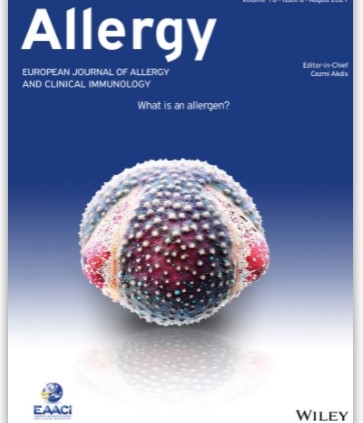Abstract
Background
Although there are many asymptomatic patients, one of the problems of COVID-19 is early recognition of the disease. COVID-19 symptoms are polymorphic and may include upper respiratory symptoms. However, COVID-19 symptoms may be mistaken with the common cold or allergic rhinitis. An ARIA-EAACI study group attempted to differentiate upper respiratory symptoms between the three diseases.
Methods
A modified Delphi process was used. The ARIA members who were seeing COVID-19 patients were asked to fill in a questionnaire on the upper airway symptoms of COVID-19, common cold and allergic rhinitis.
Results
Among the 192 ARIA members who were invited to respond to the questionnaire, 89 responded and 87 questionnaires were analysed. The consensus was then reported. A two-way ANOVA revealed significant differences in the symptom intensity between the three diseases (p < .001).
Conclusions
This modified Delphi approach enabled the differentiation of upper respiratory symptoms between COVID-19, the common cold and allergic rhinitis. An electronic algorithm will be devised using the questionnaire.

